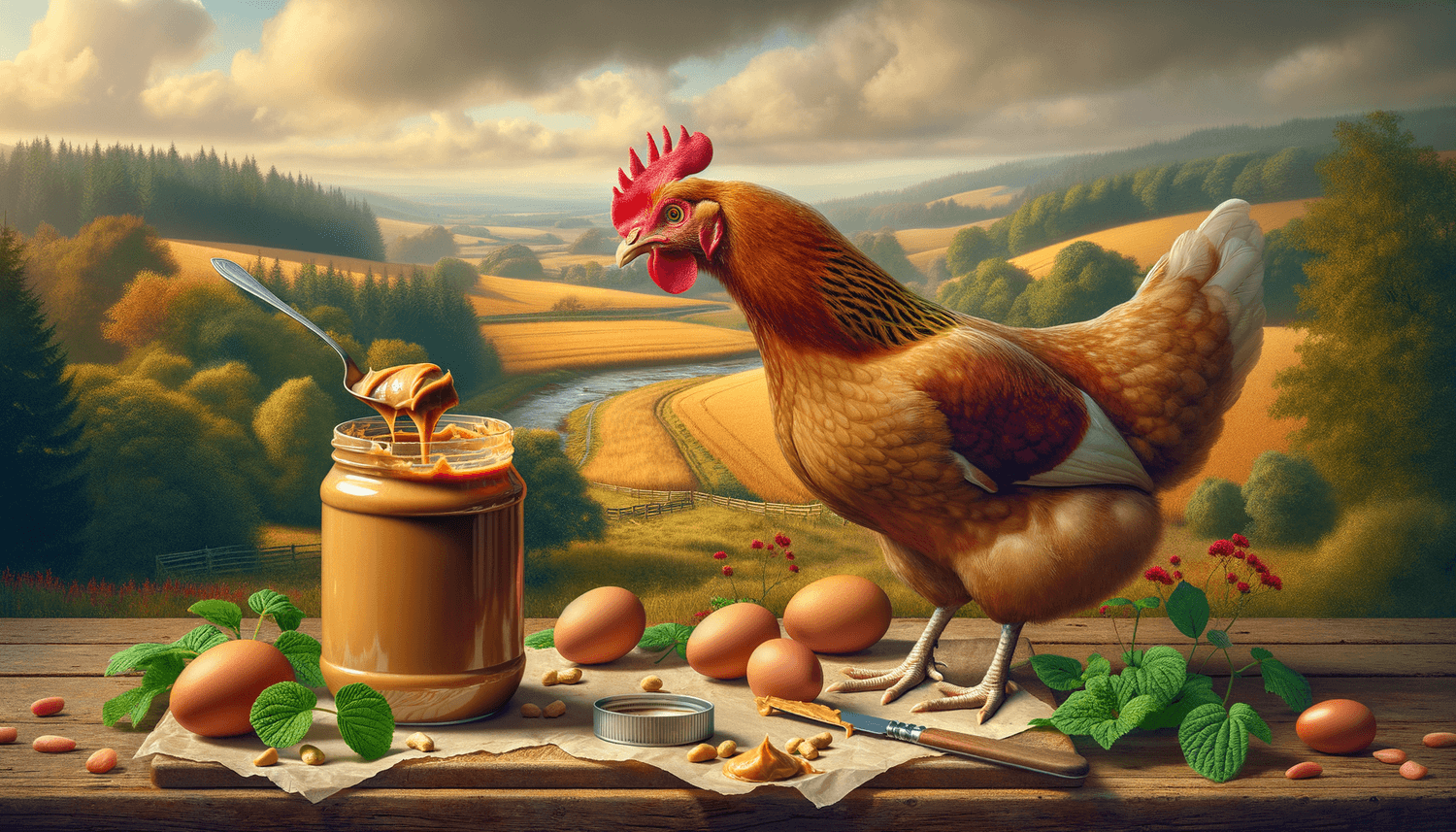Well, cluck cluck, dear chicken lovers! Get ready to spread some joy as we crack open the truth about peanut butter and your feathered friends. We’ll explore if your peckish pals can join in on the fun of devouring this gooey, nutty goodness. From weighing the pros and cons, to analyzing the nutritional value and even fluffing up the preparation process, we will leave no peanut unturned on this mouth-watering journey to discover whether chickens can eat peanut butter. So preen your feathers, grab your favorite snack, and let’s dive into this egg-citing adventure together!
Can chickens eat peanut butter?
Yes, chickens can eat peanut butter, but in moderation. Peanut butter is not toxic to chickens and can provide them with protein and healthy fats. However, it should be given as an occasional treat and not replace their regular balanced diet, as too much can lead to obesity and other health issues.
A balanced diet for your feathered friends
Just like humans, chickens need a balanced diet to strut their stuff and lay delicious, nutritious eggs. The backbone of their diet should be made up of high-quality chicken feed, which provides them with a well-rounded mix of essential nutrients like protein, vitamins, and minerals. This chicken feed should make up around 80-90% of their diet to ensure they’re getting everything they need to thrive.
Of course, we can’t forget that chickens love a little variety in their meals, just like we do! The remaining 10-20% of their diet can consist of treats that not only add excitement to their mealtimes, but also offer additional nutrients to complement the chicken feed. Offering fruits and vegetables as treats is a great way to ensure that your chickens maintain a balanced diet while also enjoying a little bit of culinary fun!
Nutritional value of peanut butter for chickens.
Feeding peanut butter to chickens can provide some nutritional benefits to our feathered friends. Peanut butter is packed with protein and healthy fats, which are essential for keeping chickens’ feathers shiny and smooth, as well as promoting overall muscle health. On top of that, peanut butter contains some vitamins and minerals like magnesium, phosphorus, and a small amount of zinc, which also contribute to maintaining healthy bodily functions in chickens.
While the nutrients in peanut butter can benefit chickens, it should be noted that it does not provide a significant amount of hydration. Chickens typically rely on fresh water as their primary source of hydration, so it’s important to remember that peanut butter shouldn’t be seen as a source for that purpose. In addition, peanut butter is calorie-dense and can quickly lead to overeating and obesity if offered too often or in large amounts. Therefore, peanut butter should be given as an occasional treat and in moderation to avoid any potential health issues arising from excessive consumption.
Nutrition table of peanut butter for chickens.
| Information | Description |
|---|---|
| Nutritional Value | Source of protein, healthy fats, magnesium, phosphorus, and a small amount of zinc. |
| Suggested Serving Size | A small dollop, marble-sized or smaller, depending on the size of your flock. |
| Safe Feeding Practices | Offer peanut butter as an occasional treat, in moderation, and not as the primary source of nutrition. |
| Preparation | Spread the peanut butter thinly on a piece of bread, or mix with some grains, seed, or oats to form a loose mixture. |
| Potential Risks | Excessive consumption may lead to obesity or other health issues related to an imbalanced diet. |
| Hydration | Peanut butter does not provide significant hydration, so ensure chickens have access to fresh water. |
| Digestion | Chickens can digest peanut butter, but it’s important to keep consumption in moderation to avoid digestive complications. |
| Seasonal Availability | Peanut butter is available year-round, making it an always accessible treat option. |
| Other Benefits | Peanut butter can act as an enriching treat, providing mental stimulation and variety to a chicken’s diet. |
Preparing peanut butter treats for your chickens
Since we’ve established that peanut butter is an acceptable treat for your clucking companions, let’s discuss some fun and creative ways to prepare peanut butter-based snacks for them. First, you can spread a thin layer of peanut butter on a piece of bread, or mix it with some grains, seeds, or oats to form a loose mixture. This can prevent the peanut butter from clumping together and causing choking hazards. Alternatively, you can stuff a hollow toy or hanging feeder with peanut butter and some healthy treats to create an engaging activity your chickens will love.
Alternatives to peanut butter
If you are looking for other healthy treats for your chickens, there are plenty of options available. Sprouted grains, leafy greens, fruits, and vegetables are all excellent choices that can provide nutritional benefits while also offering variety in their diets. A few popular treats to consider include: berries, watermelon, pumpkin, shredded lettuces, and sunflower seeds. Make sure to thoroughly wash fresh produce and remove any seeds or pits that may be harmful to your chickens.
Choosing the right peanut butter
When selecting a peanut butter brand for your chickens, there are a few considerations to keep in mind. Opt for an all-natural, unsalted, and sugar-free peanut butter to avoid feeding your chickens unnecessary additives or excessive amounts of sodium. Many commercial peanut butter brands contain added sugars, salts, and hydrogenated oils – none of which are ideal for their health. If possible, look for peanut butter that is made from 100% peanuts or consider making it at home!
Remember, moderation is key when offering peanut butter or any other treat to your chickens, ensuring they maintain a healthy, balanced diet. Happy clucking!

















